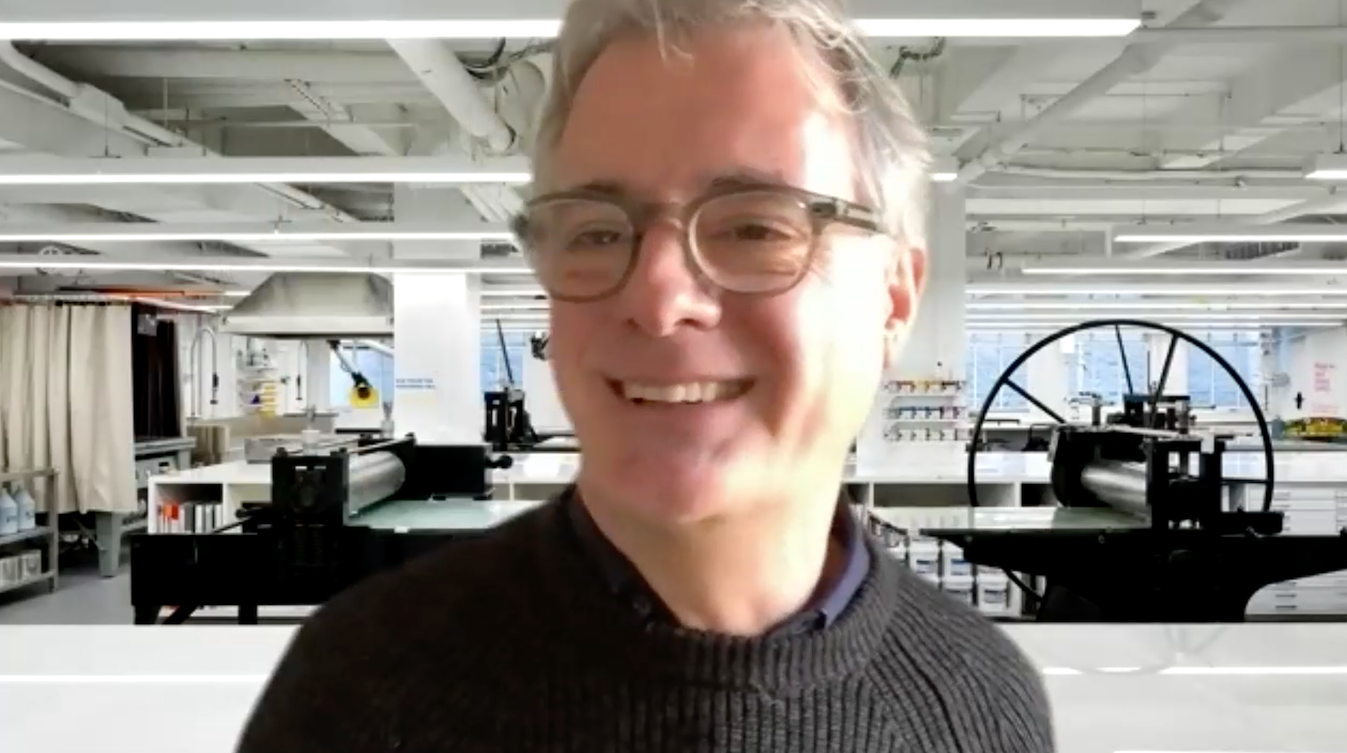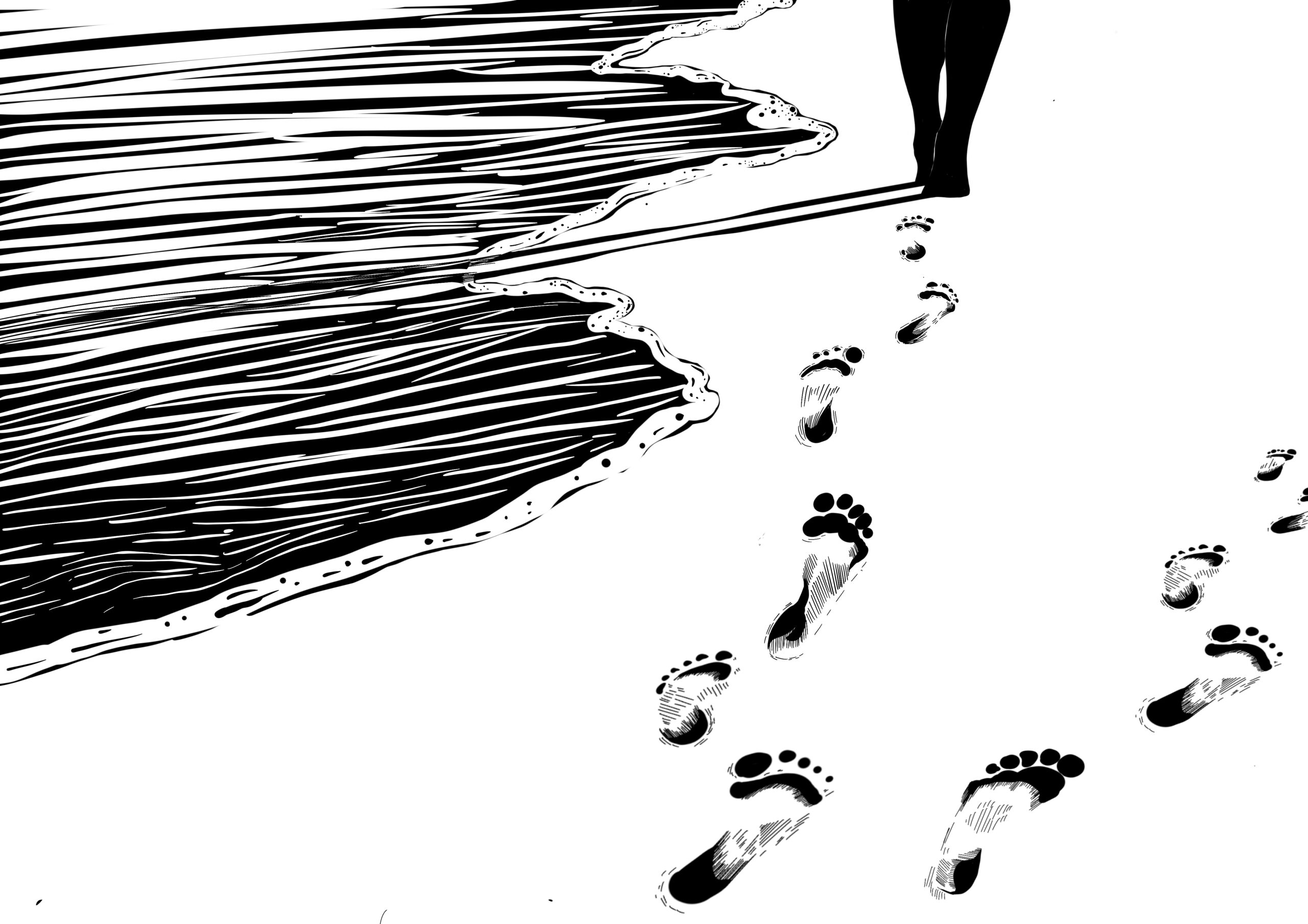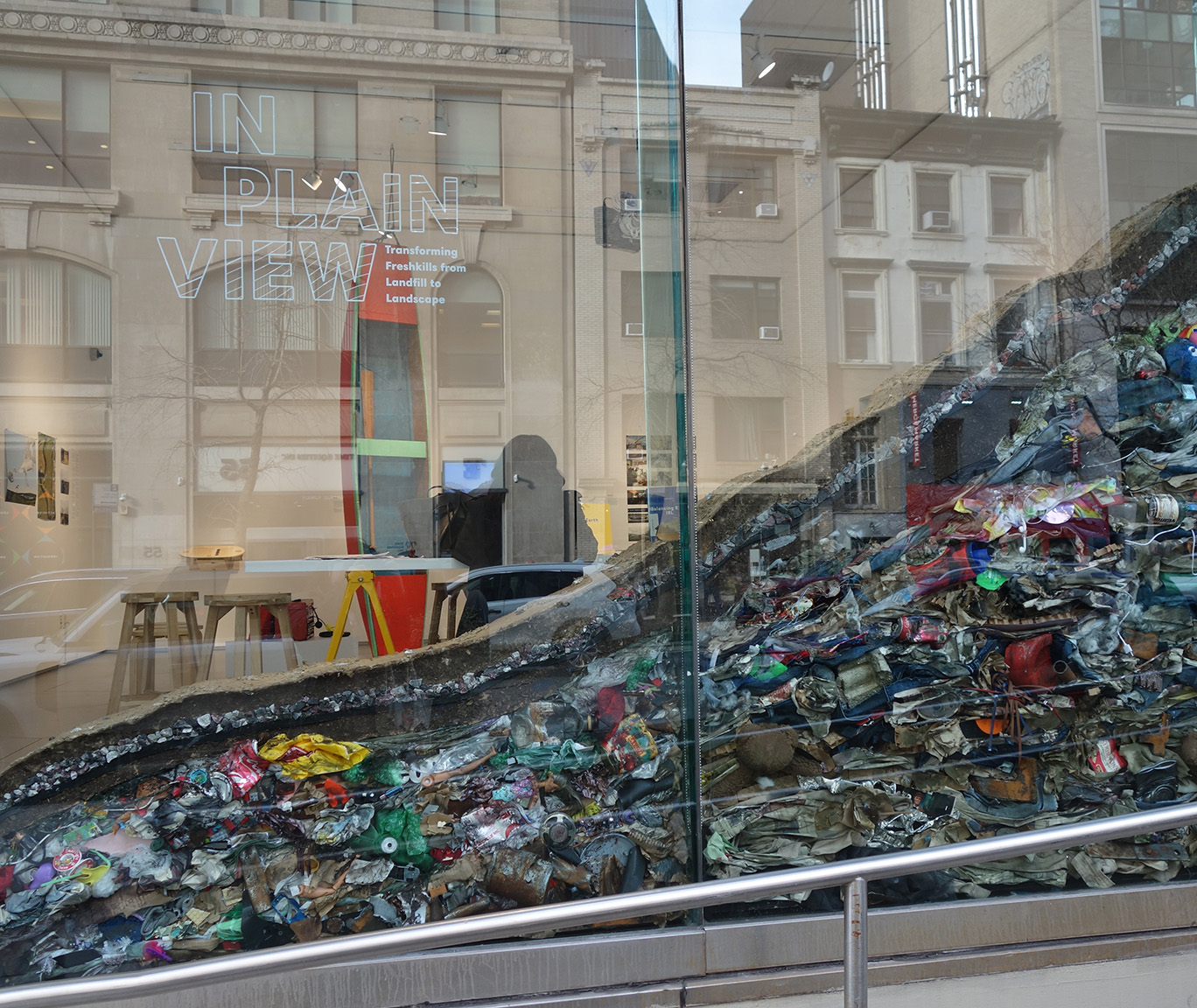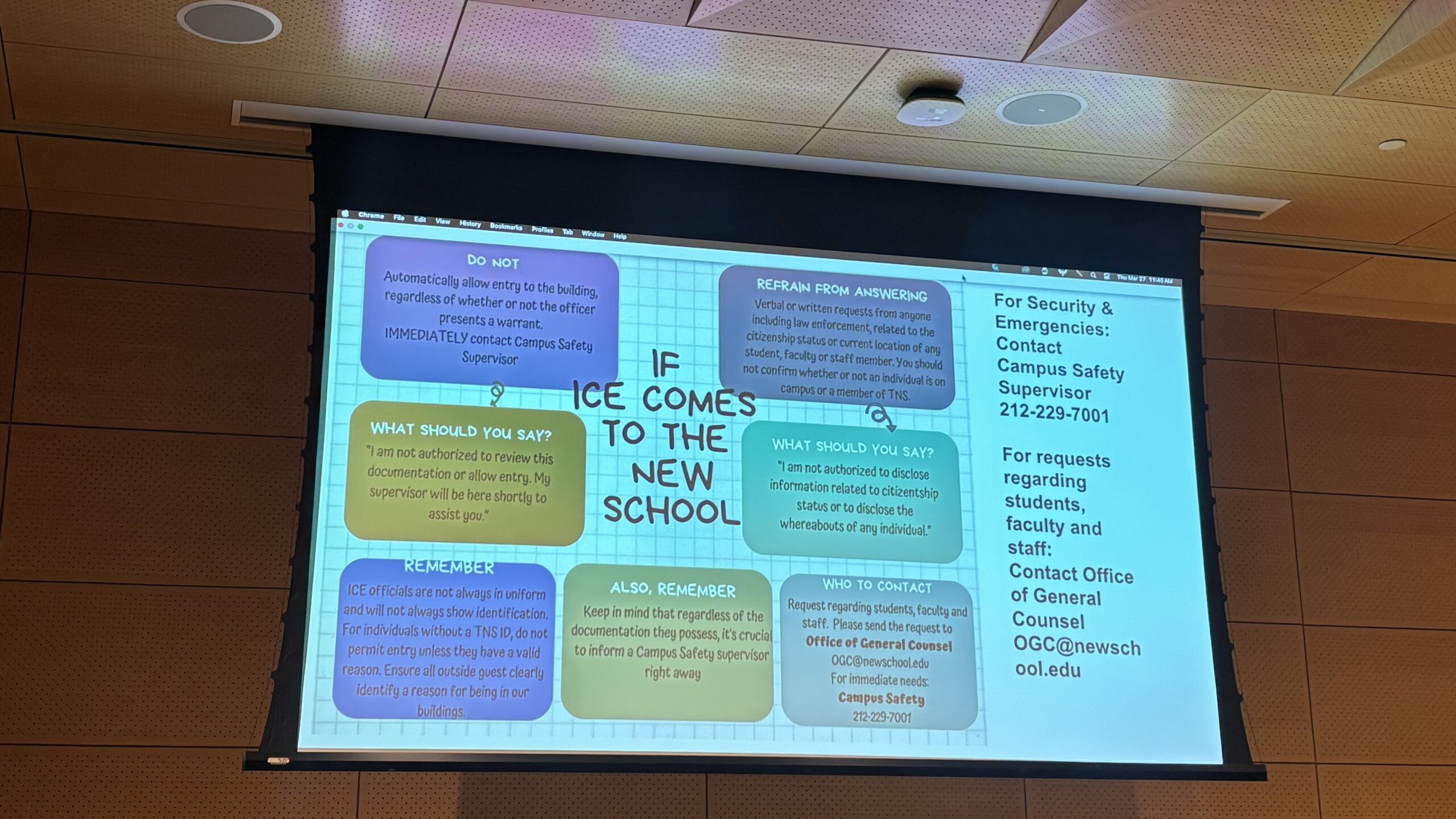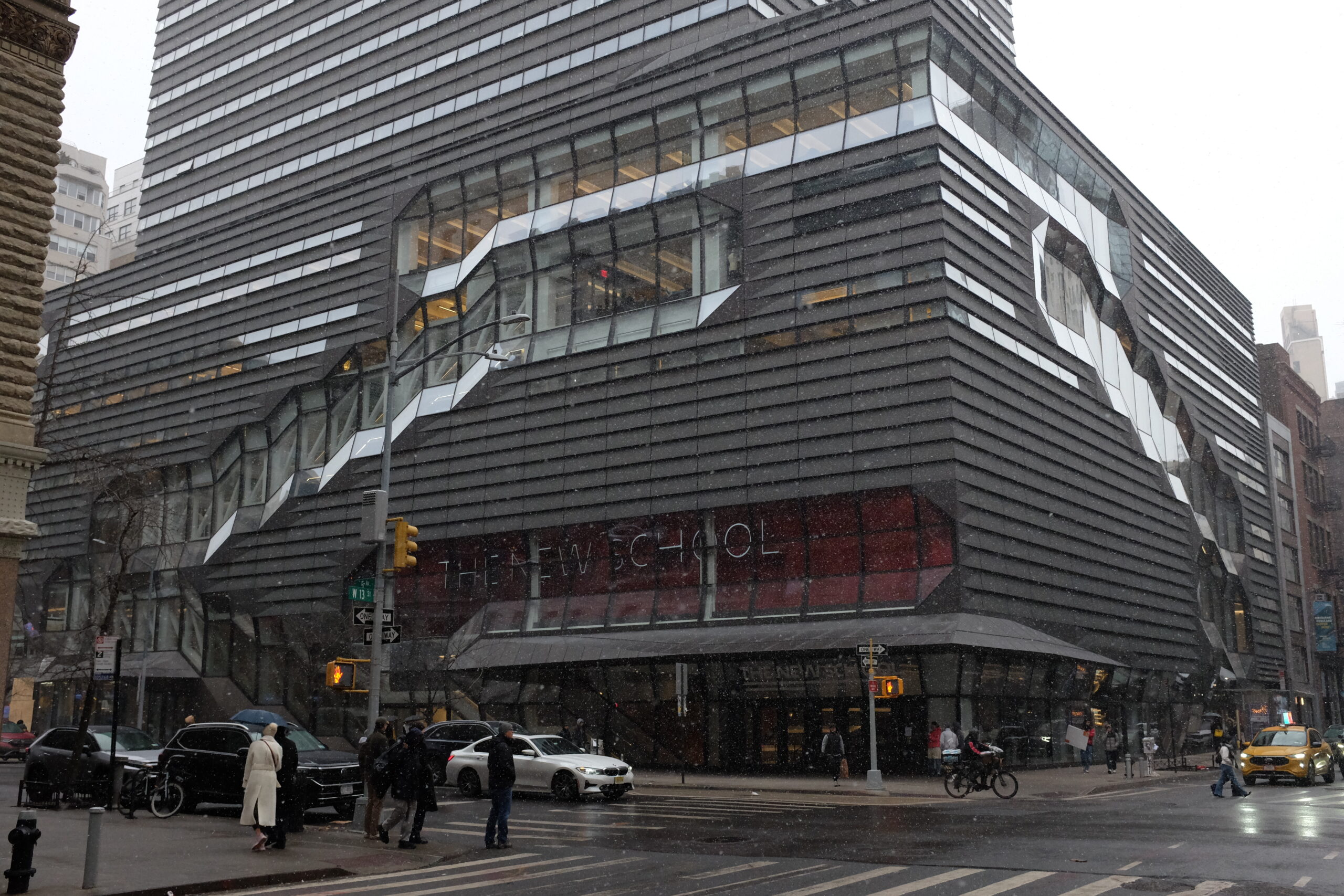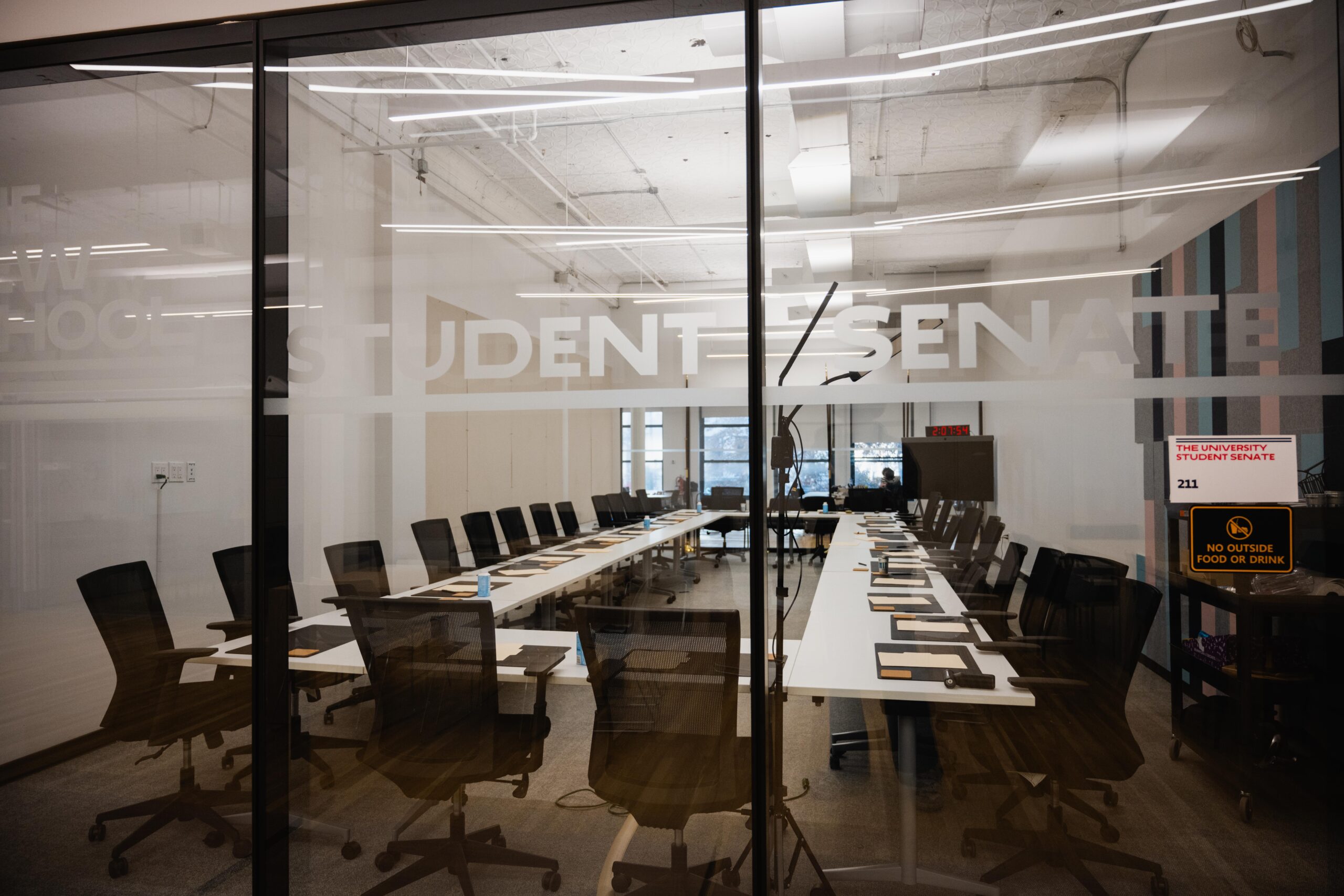Two months ago, Tim Marshall had been working at The New School as an administrative faculty member for 17 years. Since then, he resigned from his post as Provost, and returned to his home country of Australia to take up a position as Deputy Vice-Chancellor for the College of Design and Social Context, and Vice President at RMIT University.
Marshall came to The New School in 2003 as Associate Dean of Parsons, under President Bob Kerry, back when the school was still scattered across New York City. Upon his arrival, he saw the transition of President Kerry to President Van Zandt, and was an integral part of the consolidation of schools to the 5th Avenue stretch it resides now. As Dean of Parsons in 2006, Marshall put emphasis on strengthening Parsons’ design classes and the way the school approached design. In 2009, he was appointed Provost of The New School, where he served his longest term of 11 years.
We spoke with Marshall as he looks back on his 17 years at The New School. From discussing his move back across the country, what impacts of design and integration he is taking with him, what challenges he faced, and where he thinks higher education is going in the future, Marshall reflects on his time as both Dean of Parsons and Provost.
This interview has been edited for length and clarity. It was conducted via Zoom on December 3, 2020 by reporters Rory Rucker and Lauren Hoffman, with university spokesperson Amy Malsin present.
__________________________________________________________________________
Why did you decide to move from Australia to work in New York?
I was working in a university in Sydney, Australia for about 12 years. I’d been running a design school within a larger university in Sydney, I was ready for change and I was looking for new opportunities and new horizons to expand. An offer came my way from Parsons School of Design, which fell at the right moment from the right place at the right time. I also, just by circumstance, happened to have been born in the US, which made working here a lot easier. When I was first approached to apply for a position at Parsons, I, like most people, thought it was a standalone design school. I had actually no interest in it at all because I’d had no desire to work in a standalone school. I wanted to work in a design school in a university. I was more interested in that side of design, that talks to the human condition and spoke about human experience. The whole social and political history of The New School sort of mixed into that was just incredibly compelling. For all those reasons, I took a position, what was then a relatively lowly position in the dean’s office in Parsons, working with the then Academic Dean in Parsons and I took it.
What made you decide to resign this year?
Simply, I’ve been here at the university for 17 years, 11 years as a Provost. It’s not mandatory at The New School, even though it is in some places, that you do two, five-year terms in these kinds of roles. It is mandatory at my new job, that you only do 10 years. It’s kind of a normal practice. It’s a fairly demanding job and 11 years has been a long time. This is sort of my second term.
In that context, when President McBride accepted the position, I already had this on my mind, that this will be my last transitional term. I was very excited by him coming in, but with COVID and everything else, it just felt like the university could do with some new energy and new leadership in that area as well. Then an opportunity came my way in the midst of my thinking about that [resigning], which was a rare opportunity. I wasn’t looking to get out or anything like that. It was a fantastic opportunity to head up design and social context and see how it relates to what I’ve been doing since I’ve been here.
How did being Dean of Parsons influence your outlook on integrating design principles into the curriculums of all six New School branches?
My position on this has always been that I have no interest in putting one field or one school or one brand as somehow dominant over any other ones. What has always motivated me from the day I got here was the strength of the whole, being at the intersections and the networks across all of them. I haven’t been so much looking to bring design to The New School, as I have been interested in bringing all of it together. Parsons has gained tremendously, in my view, from being in The New School, I see more and more students are interested in not just being compartmentalized and being this or that kind of a student, but looking to bring these experiences together to be able to work in the world with good critical thinking skills, good creative skills, and sort of entrepreneurial spirit that you need now to make change in the world. That’s what I think I really brought from design and from Parsons, this way to think about the world synthetically.
For classes in STEM at Lang and public research programs at NSSR, why did you feel it was necessary to incorporate design principles?
That’s what’s interesting to me, not to have them just all smooshed into one thing, but rather to bring these specialisms into connection with one another, and to allow those experiences. One needs to have really deep critical thinking skills and rigorous thinking in any way that you want to work in the world. Equally, you need creativity and a sense of how to innovate. You need an ability to work across cultures and across various divides, and understand the ethical issues of equity, race and gender issues, and sexuality on a global scale, as well as local scale. That’s what’s most exciting when you see that sort of spark ignite at the intersection of different approaches that you wouldn’t otherwise get from either one on their own.
You oversaw six schools, all of whom have their own deans, faculties, and curriculums. How involved are you in the hiring process of faculty?
That’s a really good question, it sort of gets to the heart of the challenge of being a Provost, because you’re very responsible for faculty and curriculum and so on. You also have to do it while being respectful of shared governance and faculty governance and academic freedom, particularly if you are looking to make progress in certain areas, or diversify the faculty. We’ve gone a long way in terms of our ability to hire fantastic faculty, we’ve always had fantastic faculty, we continue to strengthen the faculty. We have a far more rigorous hiring process that we are really ranked for. We make sure there’s fairness and equity in the actual process of finally selecting, then once you’ve brought faculty in, you need to retain them and have an environment where they feel they can succeed, just as you do for students. It’s been remarkable to watch, just in the last nine months, just how much of a change is happening in terms of people who want to come to The New School.
How were you working to create diversity, equity, and inclusion at The New School? What challenges did you face along the way?
I brought in the first diversity person in Parsons when I was dean there. Jesse Villalobos is still working in the university section sector in his area of inclusion,diversity, and social justice. I co-chaired the social justice committee and I co-chaired the diversity committee when I first became provost for a good few years. We worked with the human resources area to change the way we hire, the search practices, the interview practices, and the selection practices. Cost of education is another big challenge for us as the cost of education keeps going up. Thinking about how to address that has been a tremendous challenge when you’re in New York City, especially, and you’re private tuition driven like most universities are in the U.S. That’s a real challenge to address these kinds of concerns, but that doesn’t mean we shouldn’t be doing our very best to do so. Having partnerships with community colleges, so students don’t necessarily have to be here all four years. To divert our revenue source away from degrees so we’re not so utterly dependent on tuition from the degrees themselves, is also essential to address those concerns.
What would you say to the students who feel as if Parsons is the only selling point of the school?
I don’t think it’s the way to look at it. I think we should all be proud of Parsons, we should all be immensely grateful that we’re an institution with a top design school. But it should not be at the expense of anyone else or any other school. Parsons is nearly 110 years old, and Lang for instance, about 20 years old. These are not apples to apples comparisons if you just look at the alumni who taught here, who graduated from here, and what they’ve done. Lang has very quickly developed a really enviable reputation as a liberal arts college dedicated to social justice and to intellectual rigor and intellectual curiosity and science. Everybody should feel proud of the schools they’re in. I think we all should feel proud of each other’s schools within The New School and the university as a whole.
What have you implemented to help students out with getting costs covered for the university?
In two areas. One is to try and create new models of learning, articulation partnerships, that can help students kind of manage both the costs. It might mean then the upper years of an undergrad, when you’re doing your internships and when you’re doing your majors, and you’re connected to the faculty, the wealth of the city can really contribute to your study in a more precise way might make more sense, for instance. I’ve certainly advanced some of those ideas and models. Also, trying to figure out how to hybridize online and on-campus learning in a way that can help with that. Then on the other side of that coin, I’ve been up the Hudson Valley looking at all warehouses at various times wondering whether we could have cohorts of students sort of study somewhat outside of New York City and then come down in their second or third years to try and offset some of the costs. I think it’s a really complex, competitive problem and you need to sort of pull it apart piece by piece.
You’re leaving the university in the midst of a very unprecedented time in the world. COVID is causing ripples within the university that will most likely breed more confusion and change, especially as McBride has taken over. How do you feel about leaving during such a chaotic time?
It’s obviously something I’ve thought a lot about and talked with President McBride about a lot. Leaving the New School was a painful, difficult decision and it felt like the right decision for both myself and the university. This was, without wanting to be overly dramatic, for all of us the most difficult professional experience of our professional lives over these last nine months. The Provost office had taken on, at that point, student success and admissions and health services. We kind of quadrupled in size, in the midst of COVID, which was the right decision, no doubt about that. Having somebody like Stephanie [Browner] come in felt like a good time, in that perspective
Ultimately for both President McBride and myself, we knew that we had such a strong leader in Stephanie, which gave a lot of comfort that somebody could come in with that renewed vigor and energy, but also knowing The New School very well, and take it on for this period just seems that certainly assuage my concerns.
Your time as Provost has been influenced by several national and political moments, such as the recession, Occupy Wall Street, and now with COVID and a call to reform national student debt. How have the past 11 years shaped your view of where higher education is going in the future?
It has completely shaped my thinking about where higher education is going in the future. It’s an essay topic. It’s a very complex, long question. First of all, The New School has provided me with incredible opportunities, and I am forever indebted to The New School for all the opportunities given me. It’s also been an amazing learning curve. I mean, huge challenges. What you point to here is really paramount. It’s the position of a private, tuition driven university with a strong social justice agenda in the middle of New York City, with all the things you’re describing kind of weighing on it. It forces you to really get down to basics, what actually are we doing here? And why are we here? And why does the world need The New School? There’s lots of universities, what’s our particular place? What’s the relevance of it? If we didn’t exist, then people would still get educated and faculty would still work in universities. We have to really focus on what is it about The New School that is so valuable, that is so necessary and really double down on those things and actually be motivated to pursue very high-minded, academic, intellectual and creative goals for the students and the faculty. You also don’t want to just sell your wares. That’s not the point, right? There’s no point in that, there’s no future in that, there’s certainly no glory in that.
How do we be true to The New School? That’s one thing about The New School from day one we have always had to figure out how to sustain this enterprise practically. Because it said from the beginning, it didn’t want an endowment, didn’t want the state, wanted to get away from being a heavily endowed university. Now, what? What do you do to replace that? How do you fund this enterprise?
You saw the change of Three Presidents, Bob Kerry, David Van Zandt, and now Dwight Mcbride. So keeping in mind, McBride has only really been here for half a year, how has your experience been different under all three?
They’re all radically different people, that’s for sure. President Bob Kerry, I was only with him for a couple of years. He was president when I was Dean at Parsons, and he really supported the complete transformation of Parsons that we were making back then, and the building up of a faculty. I’m very grateful to him for that support. He was a very powerful, charismatic character here. David Van Zandt was really looking to improve the internal processes of the university and make the institution work better, because it had been such a fragmented and disjointed institution, so they put a lot of attention to that work that Bob started. President McBride has come in really wanting to sort of take the full potential of The New School, but be much more externally focused and fundraising focused. From the perspective of a Provost, your position is always kind of moving with the president.
One of your questions was about what a Provost actually needs from a President. You need trust and a good working relationship. You need to be in lockstep. In the community, you need to be on the same page about your vision, but you also need to be able to speak very honestly and openly with each other. One of the things that President McBride is going to do for a future Provost is to be very clear about the way forward and to basically charge the Provost and the deans with the with the vision and the way forward, while he then goes into these very externally focused fundraising, supporting students, making sure that the institution is more better resourced. That’s exactly what we need right now. It’s exactly what people have been wanting from a president. He’s had as rough as a start as anyone could possibly imagine a president could have, and he’s done a remarkable job. I know the players, I know the people, I know the corridors and I know the smell of the printmaking room behind me, I know all those things. He doesn’t, he hasn’t been in his office yet. It’s very challenging to take over an institution in the middle of a crisis by Zoom, and he’s done an astonishing job, in my view.
Reflecting on all of your years here, what have been your biggest takeaways from your years working here?
Biggest takeaway would be a deep love of the New School. It gets under your skin, even when it drives you crazy and there’s something about this place that is unlike any other institution I know of in the world. It’s very particular. It’s an institution I have deep affection for, and I want nothing but to see us to continue to succeed and to grow and prosper going forward. I take away a love of New York City, which I didn’t arrive with, and an incredible gratitude for the opportunities that I’ve been offered here. The trust that people have placed in me during my 17 years has been immense for me, so I take all that away. I also take away, on the one hand, a real sense of pride in achieving what we’ve achieved. It’s a very different university now that a lot of people have walked a way out. It’s unrecognizable. When I first got here students at Parsons didn’t even know they were part of The New School until they got there, some of them, until they got their degrees at the commencement ceremony, and wondered why it said The New School. We’ve come a long way from those days. Students are starting to realize where the opportunities lie: whether that is seeing things like Journalism + Design play out, or seeing the research centers and NSSR in design and social thought. These are all evidence of the real potential of The New School. I also take away a little frustration over things that I wanted to get done that didn’t quite get done and I wish I could have gone further with. I take away a lot of friends and colleagues that I’m gonna treasure and value and Zoom with at ungodly hours when we’ll be catching up. A lot of love affection and fondness for this place.
Do you have any specific regrets throughout your time that you were like “wow, I really wish I did this” or with the faculty layoffs, like “I wish we handled this differently?” Is there anything that you wished had changed or didn’t change?
You always have those things. One of the things is when people say, “if I had more time I reckon I’d do everything the same,” no, I wouldn’t. If I had my time all over again, I would do it a little bit differently, otherwise, I wouldn’t have learned anything. By learning something you learn to do things differently. There are definitely things that could’ve been different, things that could’ve been done better. I can’t go into all of them now, but the thing is that you always have successes and failures. Some of the things mentioned today, I wish we made more progress in, I would have liked to made progress quicker. I won’t go into them individually because it’s hard without pointing fingers around.

